Mayor Adler obliterates challengers,
Kathie Tovo thumps her opponent,
sibling rivalry continues, GOP struggles to keep a seat,
and we may end up with no African American council member
Hell, you already know who won, who lost, and who’s going to duke it out in a runoff before the next installment of the council takes office come January. So I’m going to try to put some things in perspective and, for good measure, I’ll throw in a couple side orders of history.
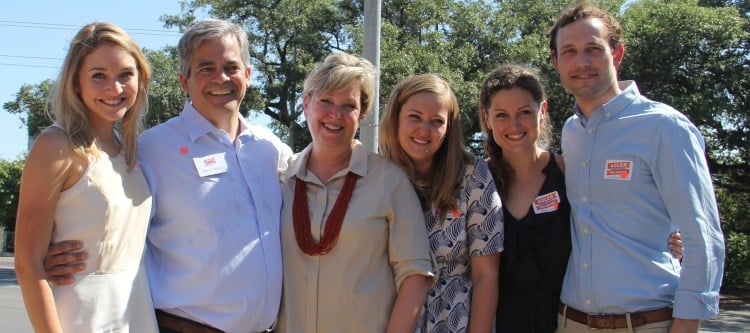
Running against six opponents Mayor Steve Adler made winning a second term look easy-peasy. Former two-term Council Member Laura Morrison was initially viewed as a worthy challenger but that proved not to be the case.
The campaign kickoffs for the two leading candidates foreshadowed her uphill battle.
Adler launched his reelection bid with a jam-packed crowd at Saengerrunde Hall. He got glowing accolades from political luminaries including Congressman Lloyd Doggett, former Housing and Urban Development Secretary Julian Castro, and State Senator Kirk Watson.

Morrison held her kickoff in the back room at Threadgill’s World Headquarters with heartfelt introductions by people who are not generally well known. A later fundraising event at Chez Zee drew about the same size crowd.
The result was a blowout win for Adler, who pulled 59 percent of the vote to her distant second place finish at 19 percent—a 40-point margin.
The raw vote totals were even more startling than the percentages. In Travis County, Adler got 176,177 votes to Morrison’s 57,171—an astounding margin of more than 119,000 votes. It was like the Boston Red Sox were beating up on the Little League champs. In Williamson County, Adler got 7,726 votes to Morrison’s 2,198, widening his total margin to more than 124,500 votes.
To put that torrential pounding in perspective, look at what’s happened in the past half-century when a former council member, or even an outsider, tried to unseat an incumbent mayor:
Binder v. McClellan—Back when council members served two-year terms, Bob Binder won a council seat in 1973 and did not seek reelection. Then in 1981 he ran for mayor against incumbent Carole Keeton McClellan and lost by 5,643 votes. In the runoff she got 54 percent to his 46 percent.
Cooke v. Cooksey—Lee Cooke served two terms as a council member ending in 1981, challenged Mayor Frank Cooksey in 1988, and won the runoff with a margin of 10,677 votes. Cooke pulled 58 percent to the incumbent’s 42 percent.
Slusher v. Todd—Daryl Slusher was a popular political reporter for The Austin Chronicle when in 1994 he challenged Mayor Bruce Todd’s reelection bid. Slusher made it into a runoff and came within 1,339 votes of winning. In the runoff Todd got 51 percent, Slusher 49 percent.
Shea v. Leffingwell—Brigid Shea was one of the ringleaders who pushed through the Save Our Springs Ordinance petition and won its passage in 1992. In 1993 she parlayed that achievement to win a council seat, then served three years and stepped down without running for reelection. But in February 2012 she kicked off a bid to unseat incumbent Mayor Lee Leffingwell. He had already won three elections, two as council candidate and one as mayor. She had about a hundred days from the kickoff to pull together support for the May election. She lost by 7,340 votes. There was no runoff as Leffingwell gathered 52 percent to her 37 percent, while a third candidate got 11 percent.
A caveat—All four of these past mayoral elections were held in the spring and involved much lower voter turnouts. The 2018 council election drew more than 61 percent of registered voters to the polls in Travis County—almost as much as the 65 percent who voted in the presidential election of 2016. Thanks in large part to the top-of-the-ballot efforts of Democrat Beto O’Rourke to unseat Republican Ted Cruz.
Tovo escapes a District 9 runoff

Incumbent Kathie Tovo, a former vice president of the Austin Neighborhoods Council, easily turned back the vigorous challenge that mounted by Danielle Skidmore. In a four-candidate race she pulled 53 percent to Skidmore’s 31 percent.
If you live in City Council District 9, as I do, then your mailbox was probably stuffed again and again with slick mailers touting Skidmore as the rightful successor to displace Tovo.
Only one of the half-dozen oversized postcards was paid for by the Skidmore campaign. It focused on the transgendered candidate’s vow to stand up against the hate directed at the LBGTQ community by the likes of Donald Trump and Dan Patrick—important but maybe not exactly an overriding issue in a fairly tolerant city like Austin.
The Home Builders Association of Greater Austin tossed in a positive mailer that touted Skidmore’s credibility as a traffic engineer who would solve Austin’s snarly stop-and-go transportation woes. In addition, reprising another perennial favorite campaign issue, she would manage Austin’s growth.
On campaign mailouts the heavy lifting was done by The Center for Austin’s Future PAC—an organization whose advisory board includes three former mayors, three former council members, and longtime movers and shakers like Pike Powers.
Two of CAFPAC’s four mailers that were dumped on District 9 voters featured grayed-out, downright ugly photos of Tovo. They slammed her voting record, which is always fair game. But two of them stated, “Kathie Tovo worked to bypass the Austin City Council’s term-limit rule, petitioning for an unprecedented third term in office.”
Wrong. There’s nothing unprecedented about a third term, as many council members served three or even four terms before the voter-approved 2012 City Charter amendment took effect to increase the length of the gig from three years to four years.
Nor is there anything unprecedented about petitioning to exceed term limits.
Council Members Jackie Goodman, Beverly Griffith, and Daryl Slusher were all term-limited in 2002. Back then, council members were elected at-large. To exceed term limits they each needed to gather more than 21,000 valid signatures. All three did so, even setting up a booth at the Armadillo Christmas Bazaar to solicit holiday shoppers. Goodman and Slusher won another term (her fourth, his third) while Griffith lost to Betty Dunkerley that year.
Tovo, who represents a district instead of the whole city at-large, figured she needed only about 1,800 signatures to qualify for another go at it. She said she collected some 5,000, of which about 4,750 were deemed valid. That gave her a campaign advantage because it provided contact information for voters inclined to give her a chance, even if they weren’t committed to marking her place on the ballot when they signed petitions.
“We were out early going door to door,” Tovo said at the downtown El Mercado restaurant on election night. “That helped to build a foundation of support. I had paid canvassers and 80 volunteers. That helped get a lot of excitement for the campaign early on. It was important to be able to demonstrate the support of my constituents.”
No African-American council member?
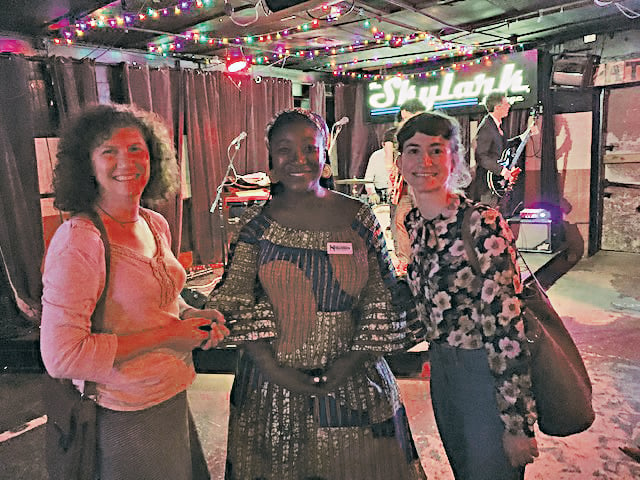
Natasha Harper-Madison, running in District 1, offers the only hope of preserving African-American representation on the City Council. That’s something Austin’s had since Berl Handcox broke the color barrier nearly a half-century ago in 1971.
Harper-Madison’s in that spot because incumbent Council Member Ora Houston’s handpicked successor, Vincent Harding, did not make the runoff—and a Latina did. This despite Harding having by far the most money in a field of six candidates. He raised more than $80,000. Harper-Madison brought in $31,650. Mariana Salazar got $16,686.
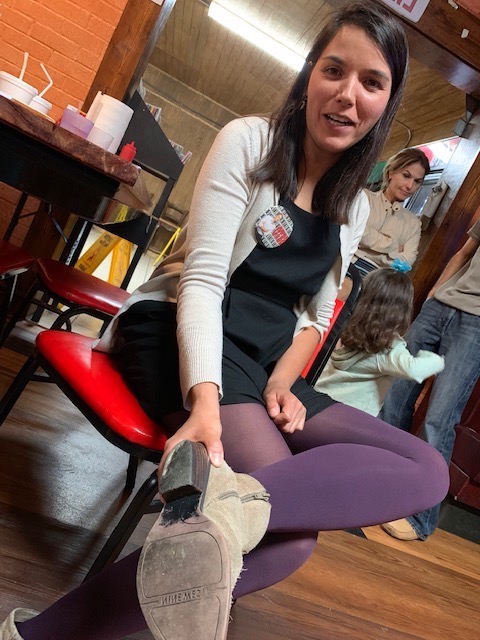
Salazar, who raised just 20 percent of what Harding did, came out on top at 26 percent of the vote. Harper-Madison’s 25 percent. Harding got 23 percent.
If Salazar wins the runoff she will eliminate African-American representation on the city’s governing body. Perhaps to her advantage, District 1’s Hispanic-Latino population is greater than its African-American population. The racial makeup of a district does not dictate election outcomes. It is necessary to build coalitions to win in majority-minority districts, as Houston did to win her seat in 2014.

But the demographics are changing. City Demographer Ryan Robinson said, the good news is that although the citywide African-American population continues to shrink as a percentage, it is reversing a trend by growing in absolute numbers.
“The biggest growth in the District 1 population is from non-Hispanic whites,” he said. He also points to the future challenge of creating an African-American “opportunity district” anywhere in the city when the 2020 census data arrives in early 2021. That’s when the Citizens Independent Redistricting Commission will be reconstituted to draw new district boundaries.
But for now if Salazar wins the District 1 seat she would be the second Latina ever elected to the council and would serve with the first: incumbent District 2 Council Member Delia Garza.
In addition, Salazar would become the fourth Latino on the council with incumbents Garza, Greg Casar in District 4, and either Sabino “Pio” Renteria or sibling Susana Almanza in District 3, depending on which of them wins the December 11 runoff.
“I’m not part of the establishment,” Salazar said at her election night watch party at La Fruta Feliz on Manor Road. “I came out of nowhere. I care about the community and I stepped up.”
“For me it’s humungous to be where I am tonight,” she said. “I have no paid staff. Everyone’s a volunteer.”
Salazar literally ran a shoe leather campaign—and showed the rundown heels on her shoes to prove it. She said she knocked on doors and registered residents of public housing complexes Booker T. Washington Terraces, built in 1953, and Rosewood Courts, built in 1939. She showed a photo of a woman in her seventies named Mercedes, a public housing resident who had never before voted. “She had never even heard of Beto (O’Rourke),” Salazar said.
Salazar is an immigrant from Venezuela. Harper-Brown touts her Austin roots.
Wearing a colorful dress made by her friend Fatou Mata while hanging out and hugging friends at the Skylark Lounge on election night, Harper-Madison talked about how her father, sporting a big Afro, came to the Kerrville Folk Festival in 1975 and enthused over what he found in Austin.
“He said Austin didn’t just accept us, didn’t just tolerate us, it embraced us,” she said. “That’s one of the reasons I’m running.”
Siblings go at it, again, in District 3
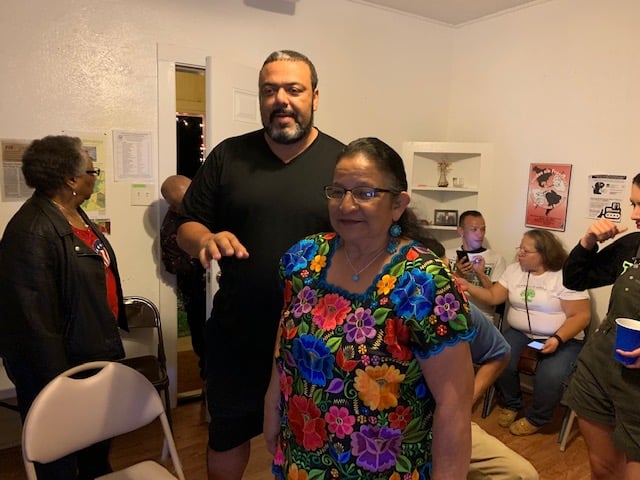
Susana Renteria Almanza was huddled in her small East Austin campaign headquarters election night. She and a small crowd of friends were mulling the early voting results and wondering whether brother Sabino “Pio” Renteria would schooch his numbers up from almost 49 percent in early voting and avoid a runoff.
Supporter Fred McGhee, who ran for council in 2014, walked in and immediately told Almanza she was going to be in a runoff. That was long before any election-day results were posted.

Much later than night when all the election night totals had rolled in, Renteria ended up with 48 percent. Almanza’s 21 percent left her a far-distant second but still in the runoff. The other four candidates each brought in between 6 percent and 8 percent.
Making McGhee’s prophesy a reality.
Almanza had a grievance to air, though. She said she thought it was unfair for Mayor Steve Adler to have put his thumb on the scales in her race by having his campaign treasurer, Eugene Sepulveda, send out an appeal for donations to Renteria’s campaign.
A copy of Sepulveda’s undated email obtained by The Austin Bulldog states:
“One of Mayor Adler’s closest allies, Pio Renteria, is in a tough fight for re-election. He’s being targeted by multiple special interest groups because he votes with the Mayor often and supports increased housing and transportation funding in the city. Pio has fought had for his district and continues to be one of the council members that wants to proactively address challenges instead of ignoring them.
“If we want to keep making progress on traffic and affordability, the Mayor needs Pio on the dais. Steve’s asked me to ask you to consider making a double max contribution to Pio. It would mean a lot to him.
“You can do so here: https://www.d3forpio.com.” (This link is no longer functional.)
So, now comes Round 2 in the Renteria clan rivalry.
Round 1 was in November 2014 when a dozen candidates competed for the District 3 seat on the newly created 10-1 council. Almanza netted 21 percent of the votes and Renteria got 19 percent to flesh out the runoff roster. But in the December runoff, Renteria easily bested her 60 percent to 40 percent.
This runoff there should be no illusions about who holds the upper hand in this runoff. Renteria pulled 10,390 votes this time, Almanza got 4,640.
District 8 pits Dem v GOP candidate

Although City Council elections are officially nonpartisan there is no question in deep-blue Austin that party affiliation trumps many other qualifications.
Page Ellis is upfront about her Democratic Party affiliation and touts it on her Facebook page.
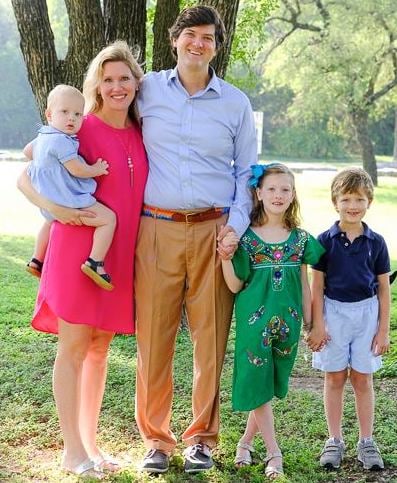
Frank Ward’s Facebook photo is equally frank about his party affiliation. He was endorsed by the Travis County Republican Party and he was incumbent Ellen Troxclair’s pick to take her seat.
In the 2014 election, the first elections to form the 10-1 council put three Republicans on the dais—Don Zimmerman in District 6, Troxclair in District 8, and Sheri Gallo in District 10. Gallo and Zimmerman were unelected in 2016 when their two-year terms expired and they were beaten by challengers Jimmy Flannigan and Alison Alter, respectively. (The first council installed five members for two-year terms, the other five for four-year terms to establish staggered terms going forward.)
Troxclair, who gave birth to two children while in office, opted not to seek reelection this year.
That left an open seat and drew four candidates. Of those, Ellis led with 31 percent of the vote and Ward was second with 25 percent.

Placing third in the District 8 race was Bobby Levinski, a former council aide to District 9 Council Member Tovo. He is an attorney with the Save Our Springs Alliance.
On election night Levinski was sitting outside Vincent’s Sports Bar on Brodie Lane long after it closed, repeatedly refreshing the browser on his laptop to see if he was going to make it into the runoff. At 10:40pm that question was much in doubt as he trailed Ward by just 99 votes.
“We have four strong candidates running for office and that’s what the results are showing,” he said.
Ultimately he fell short. That fate has befallen all but one former council aide who in the last four decades got the bug to run for office. That list includes:
James Cooley—He was an aide to Council Member Louise Epstein, then ran for council in 1993 and mayor and 1994, both times without success.
Bobbie Enriquez—She was a longtime aide to Council Member Gus Garcia who jumped into a council race of 1997, the same year Garcia was winning reelection himself. She, too, failed.
Robin Cravey—He served as aide to both Max Nofziger and Nofziger’s successor Daryl Slusher. He ran for council in 2008 and placed third to miss the runoff.
Roger Duncan—He was an aide to Council Member Margaret Hoffman and proved an exception to the rule by winning a seat on the council in 1981. He was reelected in 1983. And after two terms he went on to land numerous executive positions on city staff before eventually retiring as general manager of Austin Energy in 2010.
Thirty-three days till runoffs
District 1—Salazar v. Harper Madison. Will the council lose African-American representation?
District 3—Renteria v. Almanza. Brother and sister brace for Round 2.
District 8—Ellis v. Ward. The last chance to preserve a Republican on the council.
Links:
Travis County Election Results, November 6, 2018 (4 pages)
Williamson County Election Results for the City of Austin, November 6, 2018 (3 pages)
Related Bulldog coverage:
False: Cohen’s Claim to be EMT: District 3 candidate convicted of numerous crimes including burglary, two cases of family violence, October 30, 2018
No Gun, No Self-Defense: Lewis Conway Jr.’s widely reported version of why he killed a man at odds with public records and witness, October 25, 2018
Trust indicators:
 Ken Martin has been covering local government and politics in the Austin area since 1981. See more on Ken on the About page.
Ken Martin has been covering local government and politics in the Austin area since 1981. See more on Ken on the About page.
Email [email protected].
Who funds this work? This report was made possible by contributions to The Austin Bulldog, which operates as a 501(c)(3) nonprofit for investigative reporting in the public interest. You can help support this independent coverage by making a tax-deductible contribution.
An alphabetic list of donors who have contributed to The Austin Bulldog since the organization was formed in 2009 and the cumulative amount each person has given through September 25, 2018, are listed on the Contribute page.
Comments are welcome: If you would like to post your reaction to this story, please do so on the Bulldog’s Facebook page.







